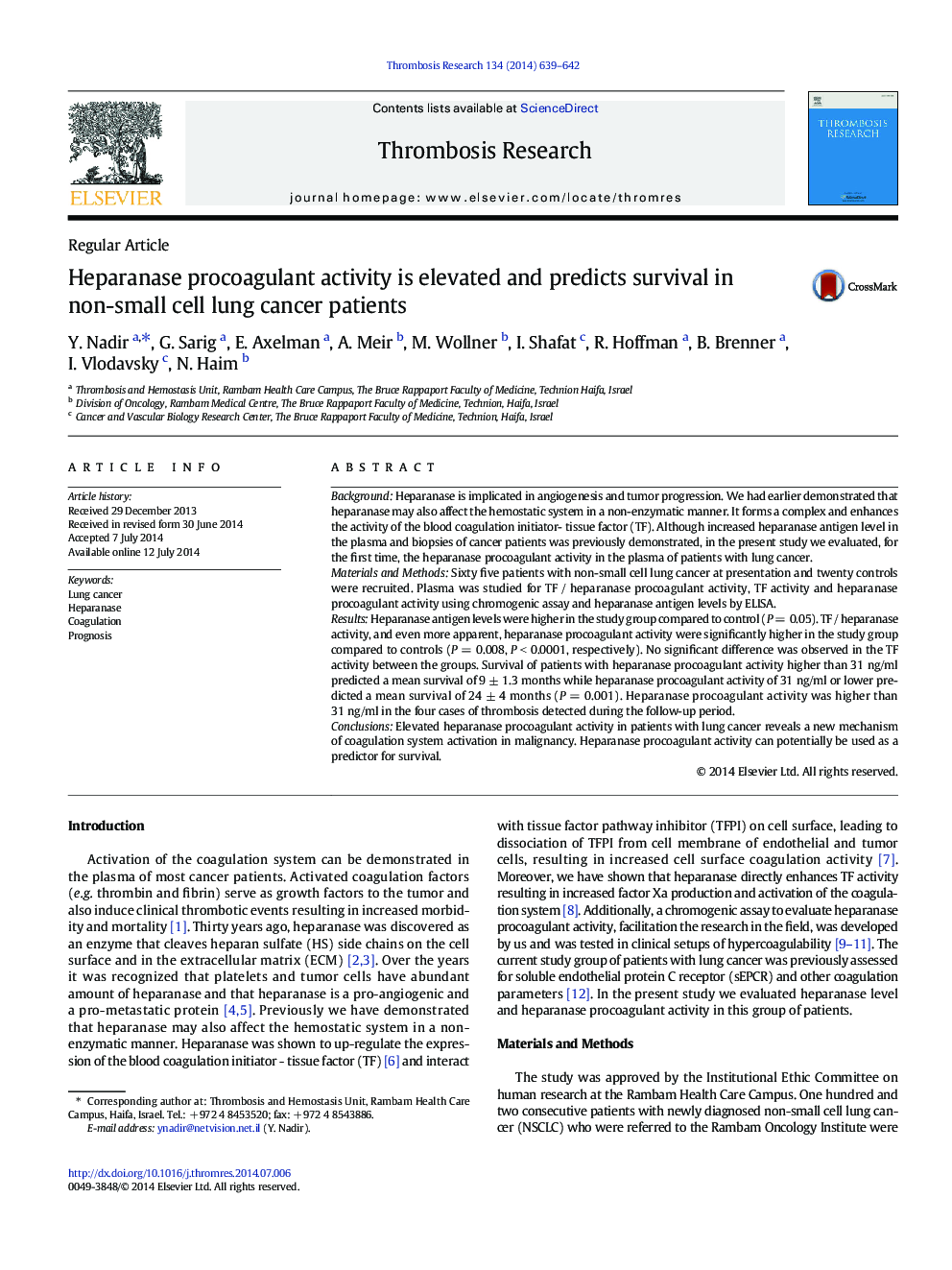| کد مقاله | کد نشریه | سال انتشار | مقاله انگلیسی | نسخه تمام متن |
|---|---|---|---|---|
| 6002006 | 1182963 | 2014 | 4 صفحه PDF | دانلود رایگان |
- Sixty five patients with non-small cell lung cancer at presentation and twenty controls were recruited.
- Elevated heparanase procoagulant activity in patients with lung cancer reveals a new mechanism of coagulation system activation in malignancy.
- Heparanase procoagulant activity can potentially be used as a predictor for survival.
BackgroundHeparanase is implicated in angiogenesis and tumor progression. We had earlier demonstrated that heparanase may also affect the hemostatic system in a non-enzymatic manner. It forms a complex and enhances the activity of the blood coagulation initiator- tissue factor (TF). Although increased heparanase antigen level in the plasma and biopsies of cancer patients was previously demonstrated, in the present study we evaluated, for the first time, the heparanase procoagulant activity in the plasma of patients with lung cancer.Materials and MethodsSixty five patients with non-small cell lung cancer at presentation and twenty controls were recruited. Plasma was studied for TF / heparanase procoagulant activity, TF activity and heparanase procoagulant activity using chromogenic assay and heparanase antigen levels by ELISA.ResultsHeparanase antigen levels were higher in the study group compared to control (P = 0.05). TF / heparanase activity, and even more apparent, heparanase procoagulant activity were significantly higher in the study group compared to controls (P = 0.008, P < 0.0001, respectively). No significant difference was observed in the TF activity between the groups. Survival of patients with heparanase procoagulant activity higher than 31 ng/ml predicted a mean survival of 9 ± 1.3 months while heparanase procoagulant activity of 31 ng/ml or lower predicted a mean survival of 24 ± 4 months (P = 0.001). Heparanase procoagulant activity was higher than 31 ng/ml in the four cases of thrombosis detected during the follow-up period.ConclusionsElevated heparanase procoagulant activity in patients with lung cancer reveals a new mechanism of coagulation system activation in malignancy. Heparanase procoagulant activity can potentially be used as a predictor for survival.
Journal: Thrombosis Research - Volume 134, Issue 3, September 2014, Pages 639-642
